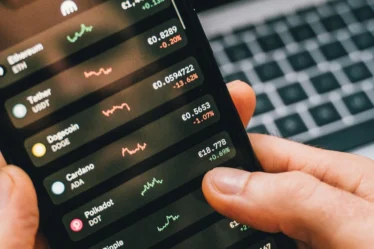
The digital coin market, often referred to as the cryptocurrency market, has seen a significant rise in popularity worldwide, and India is no exception. As more Indians gain access to smartphones, internet connectivity, and digital wallets, the landscape for cryptocurrencies in the country is evolving rapidly.
In this blog, we’ll explore the growth of the digital coin market in India, the opportunities it presents, and the challenges that need to be addressed in order for India to fully embrace the future of digital currencies.
1. The Rise of Digital Coins in India: A New Financial Era
In recent years, cryptocurrencies like Bitcoin, Ethereum, and JioCoin have gained attention in India. The rise of the digital coin market reflects India’s growing interest in blockchain technology, the decentralized ledger that powers these digital assets.
Several factors have contributed to the growth of digital currencies in India:
-
Increased internet penetration: With over 600 million internet users, India has one of the largest digital user bases in the world. This connectivity has allowed Indian users to engage in online trading and investing in cryptocurrencies.
-
Shift towards digital payments: The Indian government’s push for a cashless economy has accelerated the adoption of digital payment solutions. Cryptocurrencies offer an alternative method of conducting transactions without relying on traditional banking infrastructure.
-
Rising investment interest: Many Indian investors see cryptocurrencies as an opportunity to diversify their portfolios. While traditional investments like stocks and bonds remain popular, digital coins have emerged as an exciting alternative with the potential for high returns.
2. Popular Cryptocurrencies in India
Several digital coins have gained prominence in the Indian market. Let’s take a look at the most popular ones:
-
Bitcoin (BTC): As the first and most well-known cryptocurrency, Bitcoin remains the dominant digital currency in India. Despite its high volatility, many investors view Bitcoin as a store of value and a potential hedge against inflation.
-
Ethereum (ETH): Ethereum is widely regarded as the second most popular cryptocurrency after Bitcoin. Ethereum’s blockchain enables the creation of smart contracts, and its decentralized applications (dApps) are becoming increasingly popular in the Indian market.
-
JioCoin: Created by Reliance Jio, JioCoin is a new entrant in the Indian cryptocurrency space. Although it doesn’t fit the traditional definition of a cryptocurrency like Bitcoin or Ethereum, JioCoin is gaining attention due to the strong backing of Jio’s telecom infrastructure, which could lead to easier integration with India’s existing digital payment systems.
-
Pi Coin: Another cryptocurrency gaining traction in India is Pi Coin. Unlike traditional cryptocurrencies, Pi Coin can be mined through mobile devices, making it accessible to a wider audience. Its community-driven model has generated significant buzz, especially among those new to digital currencies.
3. The Opportunities in India’s Digital Coin Market
India’s digital coin market offers tremendous opportunities. Here are some of the key benefits:
-
Financial inclusion: Cryptocurrencies provide a way for individuals who do not have access to traditional banking services to engage in the digital economy. This is particularly beneficial for rural and underserved communities in India.
-
Investment diversification: Digital coins allow Indian investors to diversify their portfolios. As global financial markets experience uncertainty, cryptocurrencies provide an alternative that may help safeguard wealth.
-
Job creation and innovation: The digital coin market is also opening doors to new job opportunities in the technology, finance, and blockchain sectors. Startups and companies in India are leveraging blockchain technology to create innovative products and services.
-
Boost to the Indian economy: If adopted widely, cryptocurrencies could facilitate faster, cheaper, and more secure transactions within India and across borders. This could boost India’s digital economy, create new industries, and improve access to global markets.
4. Challenges Facing the Digital Coin Market in India
Despite the many opportunities, there are several challenges that need to be addressed for the digital coin market to thrive in India:
-
Regulatory uncertainty: One of the biggest concerns for investors and businesses is the lack of clear regulations surrounding cryptocurrencies in India. While the Indian government has expressed interest in regulating digital currencies, the legal framework for their use and trading remains ambiguous.
-
Volatility: Cryptocurrencies are known for their extreme volatility. While this presents opportunities for high returns, it also poses significant risks. The price fluctuations of digital coins can lead to sudden gains or losses, making it difficult for investors to predict future outcomes.
-
Lack of awareness: Many people in India still lack a basic understanding of how cryptocurrencies work. As a result, they may be hesitant to invest or engage with digital coins. There’s a need for better education and awareness to help people make informed decisions.
-
Security concerns: Cryptocurrency exchanges and wallets have been targets of cyberattacks in the past. Security remains a significant concern for investors who want to protect their digital assets.
5. The Future of the Digital Coin Market in India
Despite the challenges, the future of the digital coin market in India looks promising. As the government works on developing a regulatory framework and as more Indians embrace digital payments and blockchain technology, the market is expected to continue to grow.
With the backing of major corporations like Reliance Jio and the increasing participation of Indian investors in the cryptocurrency space, digital coins could soon become an integral part of India’s financial ecosystem.
In the coming years, we may see the rise of new digital currencies specifically designed to address India’s unique market needs, such as JioCoin or other Indian-centric cryptocurrencies. As India continues its journey toward digital transformation, the digital coin market will undoubtedly play a key role.
Conclusion
The digital coin market in India is still in its early stages, but it holds tremendous potential for growth and innovation. As the market matures, digital currencies could change the way Indians conduct financial transactions, invest, and engage with the global economy.
For investors and tech enthusiasts alike, now is the time to explore the potential of digital coins and get involved in the emerging Indian cryptocurrency market.


